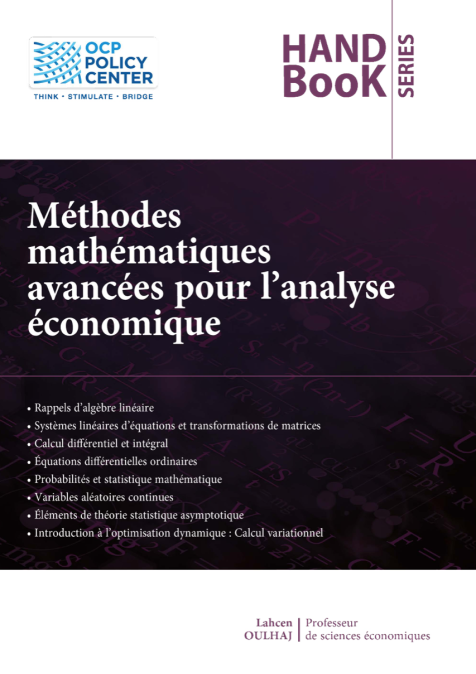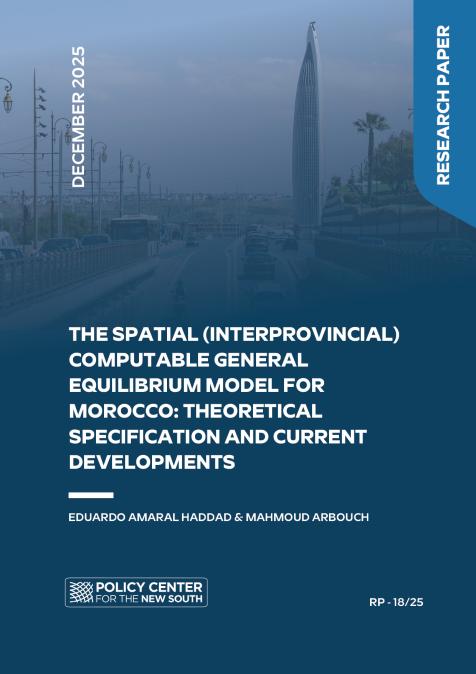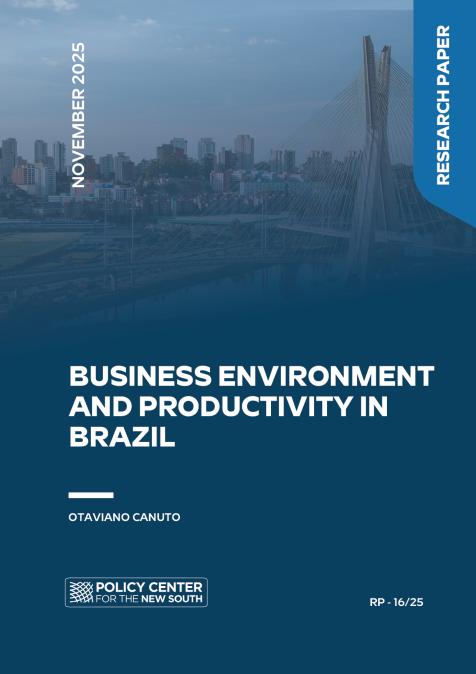Publications /
Text Book Series
Le présent livre présente un ensemble d’outils et de notions mathématiques communément utilisés en économie appliquée. Il commence par rappeler les notions d’algèbre matricielle, et enchaîne avec l’étude des systèmes linéaires d’équations et les transformations de matrices, pour traiter de la décomposition des matrices, devenue un outil couramment utilisé en économétrie des séries chronologiques et des données de panel.
Le calcul différentiel et intégral, de plus en plus utilisé en économie et en économétrie financière, notamment par les économistes de la London School of Economics qui ont développé le modèle ARFIMA, font l’objet d’un chapitre entier.
On sait que la macroéconomie servant de cadre aux politiques économiques (conjoncturelles) est devenue dynamique, depuis les travaux des économistes du cycle réel des affaires (Finn E. Kydland et Edward C. Prescott, entre autres) au début des années 1980. Ce modèle du cycle réel (RBC model), après avoir intégré des apports keynésiens et monétaristes, est devenu le modèle DSGE (Dynamic and Stochastic General Equilibrium), qui constitue l’outil privilégié de la conduite de la politique monétaire, à travers le monde, au moins jusqu’en 2008. Soucieux de l’intérêt grandissant pour cet aspect dynamique, ce livre a tenu à introduire les équations différentielles ordinaires, qui sont des outils mathématiques indispensables pour l’étude des systèmes dynamiques en économie.
Les statistiques, probabilités, et lois discrètes et continues usuelles sont également traitées au niveau du présent livre. Il traite aussi des notions très utiles à l’économiste statisticien telles que la théorie statistique asymptotique, les moments empiriques et les distributions empiriques et théoriques.
Le dernier chapitre du livre introduit l’optimisation dynamique qui est au cœur de l’analyse économique dynamique et s’attarde quelque peu sur le calcul des variations, resté depuis Newton, Euler et Lagrange, le seul outil de résolution des problèmes d’optimisation dynamique, jusqu’aux années 1950 qui ont vu l’élaboration du principe du maximum du russe Pontryaguine et de la programmation dynamique de l’américain Richard Bellman.











